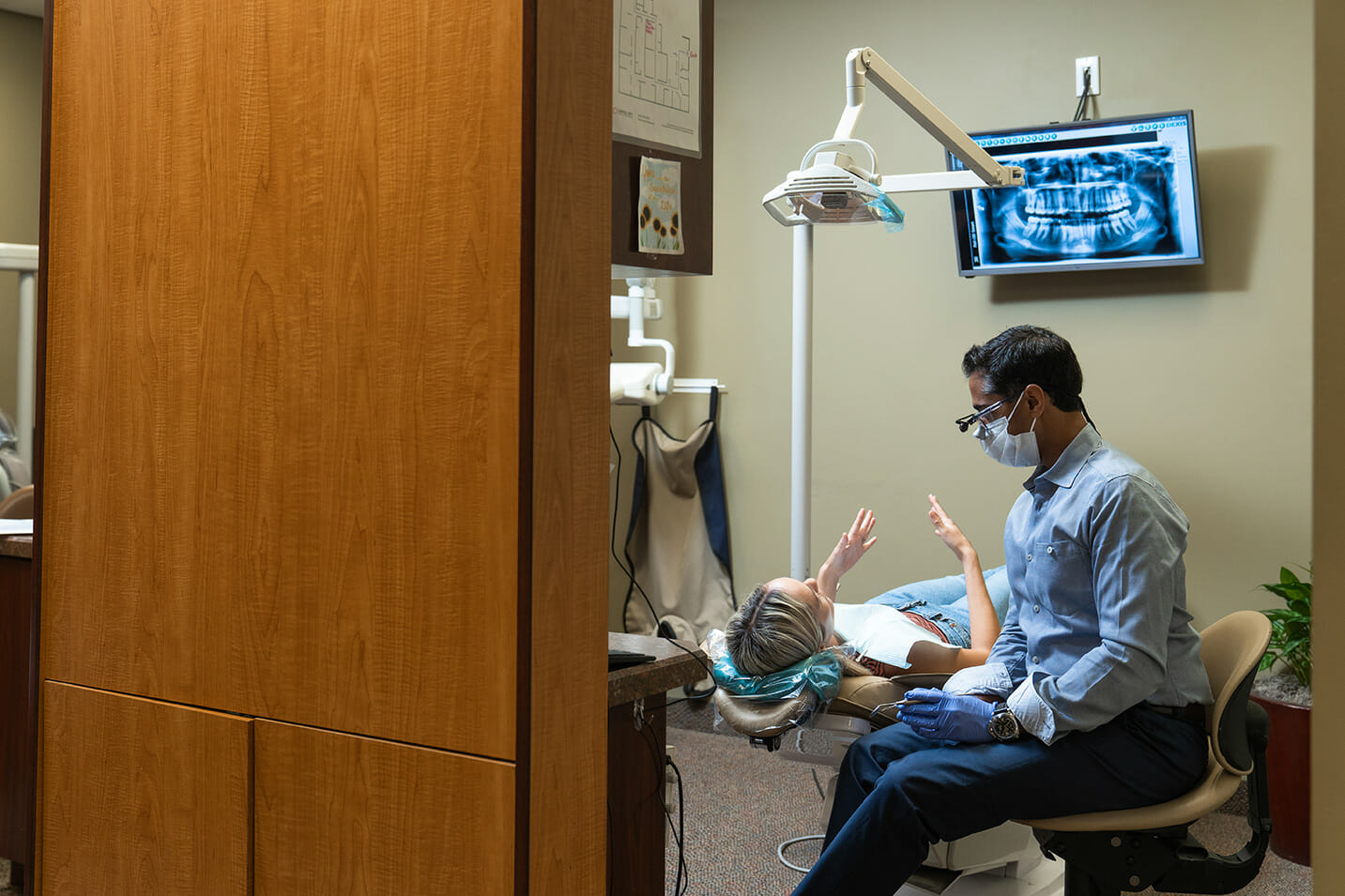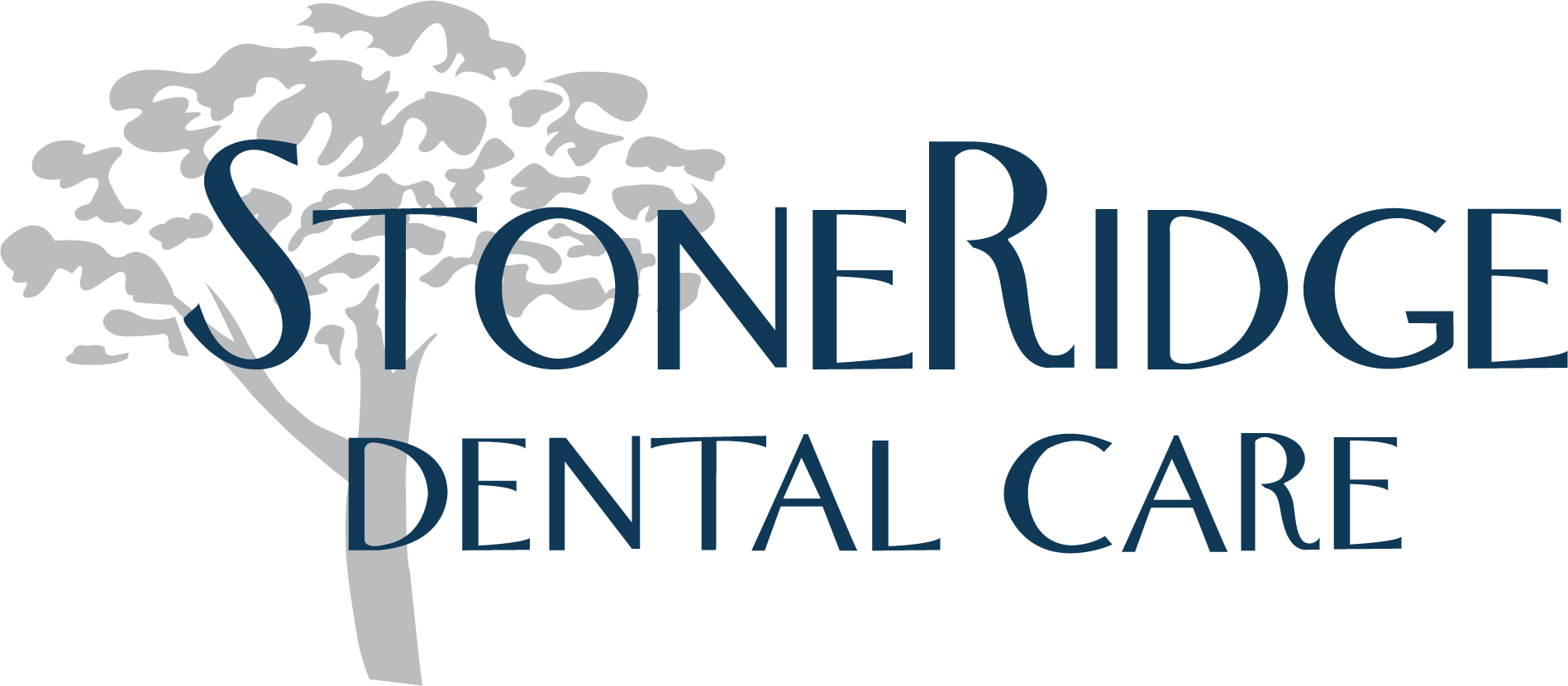Nightguards

If you suffer from a condition called sleep bruxism or have temporomandibular joint dysfunction, you are likely suffering from some painful symptoms and possibly damaging your tooth enamel while you sleep.
Our dentists at StoneRidge Dental Care can help you find relief and protect your teeth while you sleep with a custom-made dental nightguard.
What Is a Dental Nightguard?
Also called an occlusal splint, a nightguard is a mouthguard intended to be worn while you sleep.
Nightguard designs vary depending on whether you are suffering from sleep bruxism, temporomandibular joint dysfunction, or a combination of both. Sometimes they are designed simply to protect your tooth enamel and chewing surfaces. Other times, they feature a thicker design intended to reposition your jaw into a more comfortable arrangement to prevent clenching, muscle tension, and other symptoms.
Why Wear a Mouthguard at Night?
The purpose of wearing a dental nightguard is to prevent painful symptoms and protect your teeth and gums from the wear and tear associated with the following issues:
Sleep Bruxism
Sleep bruxism is characterized by the grinding of teeth and clenching of the jaw during sleep. There’s no clear cause of sleep bruxism, but it seems to be associated with stress — and also passed down through families.
Grinding your teeth and clenching your jaw at night puts excessive wear and tear on your teeth. It can lead to tooth decay, sensitivity, broken teeth, chipped teeth, and even cause your gums to recede. Additionally, sleep bruxism is associated with more frequent headaches and jaw, neck, face, and ear pain.
Temporomandibular Joint Dysfunction
Temporomandibular joint dysfunction (TMD) is characterized by a misalignment of or strain and damage to the joints that connect the jawbone to the skull. TMD and sleep bruxism are related disorders, as each can exacerbate the other.
Symptoms of TMD include jaw pain, frequent headaches, teeth clenching and grinding, lockjaw, and popping, clicking, or grinding in the temporomandibular joints.
Signs You Might Need a Dental Nightguard
During your regular dental examination, our dentists can detect the telltale signs of wear and tear on your teeth that are associated with sleep bruxism and temporomandibular joint dysfunction.
You might also notice some of the following signs and symptoms:
- Increased teeth sensitivity
- Teeth pain in the morning
- Jaw, face, neck, or ear pain
- Frequent headaches and migraines
- Clicking, popping, or grinding in your jaw joints
- Lockjaw
- Muscle tension
- Gum recession
If you notice any of these signs or symptoms, we encourage you to schedule an appointment right away.
Custom-Made Nightguards at StoneRidge Dental Care
If you think you might be grinding or clenching your teeth at night or if you experience any of the above-listed symptoms, we recommend scheduling an examination with one of our dentists at StoneRidge Dental Care.
We can talk with you about your symptoms, evaluate your temporomandibular joints, and examine your teeth for signs of excessive, abnormal wear patterns to determine whether you might be suffering from sleep bruxism and/or temporomandibular joint dysfunction. We can then fit you for a custom-made nightguard designed to alleviate your symptoms and protect your teeth while you sleep.
To learn more or schedule an appointment, we welcome you to contact our dental clinic in Gahanna today.







